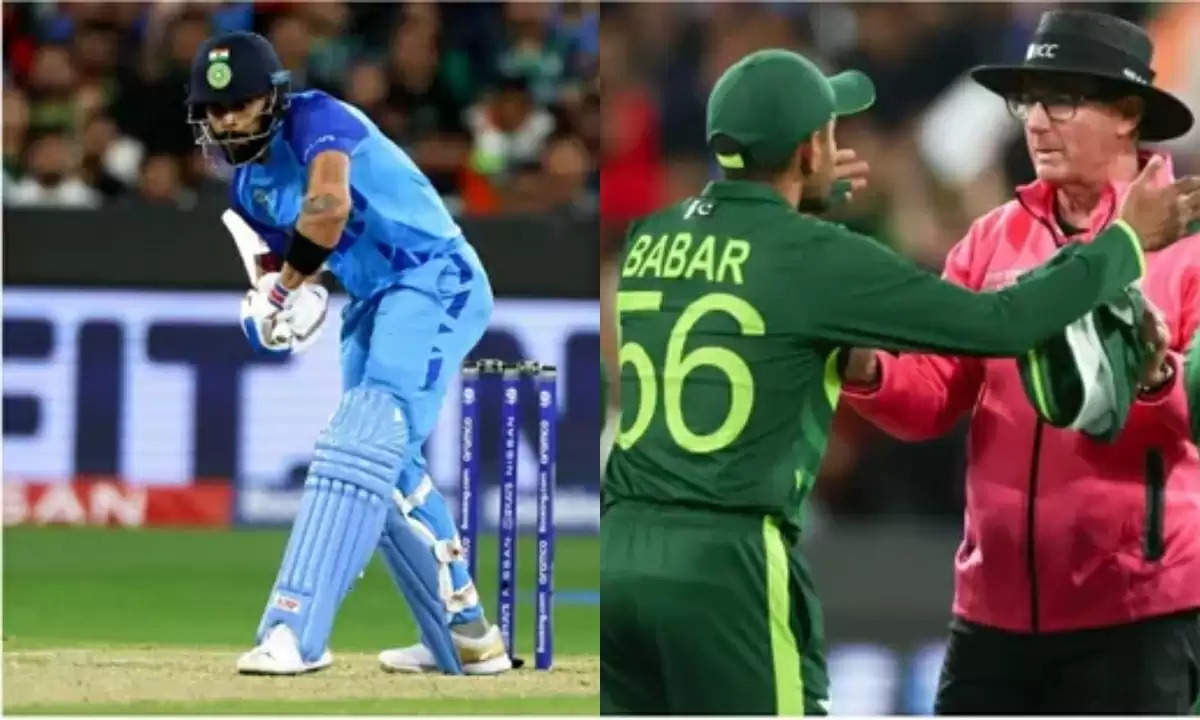The Indian cricket team registered a dramatic four-wicket win over Pakistan in the ongoing T20 World Cup 2022. Former Indian captain and batting legend Virat Kohli played the most crucial T20 innings of his career as he single-handedly took the Indian side to the winning lines. Chasing the target of 160 runs, Virat proved to the world why he is regarded as the ‘chase master’, especially in the last three overs of the game.
There was a fair share of drama and controversy in the last ball, which was topped by a free-hit delivery which confused many fans and Pakistan captain, Babar Azam as well.
What happened?:
With three balls remaining and India still needing 13 runs to win, Pakistani left-arm spinner, Mohammad Nawaz bowled a full toss which was called a no-ball and was dispatched for a six by Virat Kohli.
Now the equation was India needed six to win off three balls still (because the previous ball was a no-ball) and the next delivery would be a free hit. Nawaz bowled and Virat swung having nothing to lose as he couldn’t be dismissed on this delivery. Virat missed however and the ball ricocheted off the stumps towards the third-man fielder. Kohli and DK stole three runs by the time the ball was fielded.
Following this, the Pakistani players as well as the commentators seemed confused with what had just happened. Babar walked up to the umpires and seemed to enquire why the ball was not declared a dead ball after Kohli had been bowled.
But what does the rule say?:
According to the commentators, it seemed Babar wanted the delivery to be called a ‘dead ball’, since it hit the stumps.
As per the MCC Laws of Cricket, the ball can only become dead when “it is finally settled in the hands of the wicketkeeper or of the bowler”, or when “a boundary is scored.” The ball can also be called a dead ball when “a batter is dismissed. The ball will be deemed to be dead from the instant of the incident causing the dismissal.”
The law – 20.1.1 – also states the other different ways of declaring a ball dead, including the times when the umpire has the authority on the decision. The umpire can call the ball dead when “one or both bails fall from the striker’s wicket before the striker has had the opportunity of playing the ball.”


